Like I said in last week’s episode, this summer, we’re focusing on getting a good feel for what teachers have gone through this year. What struggles you’ve had, and we want to acknowledge you for the work you’ve done and empathize with you for how hard that was. We also want to celebrate, but right now doesn’t feel like the right headspace for that. So this week I want to encourage you to take stock of the year.
In a survey we did, many shared that this year was a wake-up call, but they weren’t sure what they were waking up to. I think a lot of teachers are waking up to the fact that teaching has become toxic, that teaching has become too much to handle. They are expecting too much out of teachers, they are not respecting the work that we’re doing, and they are not giving us the support that we need. This year, I heard story after story about districts giving webinars on self-care, telling teachers, “Don’t forget self-care,”
And this summer, taking stock is a great way for teachers to practice self-care.
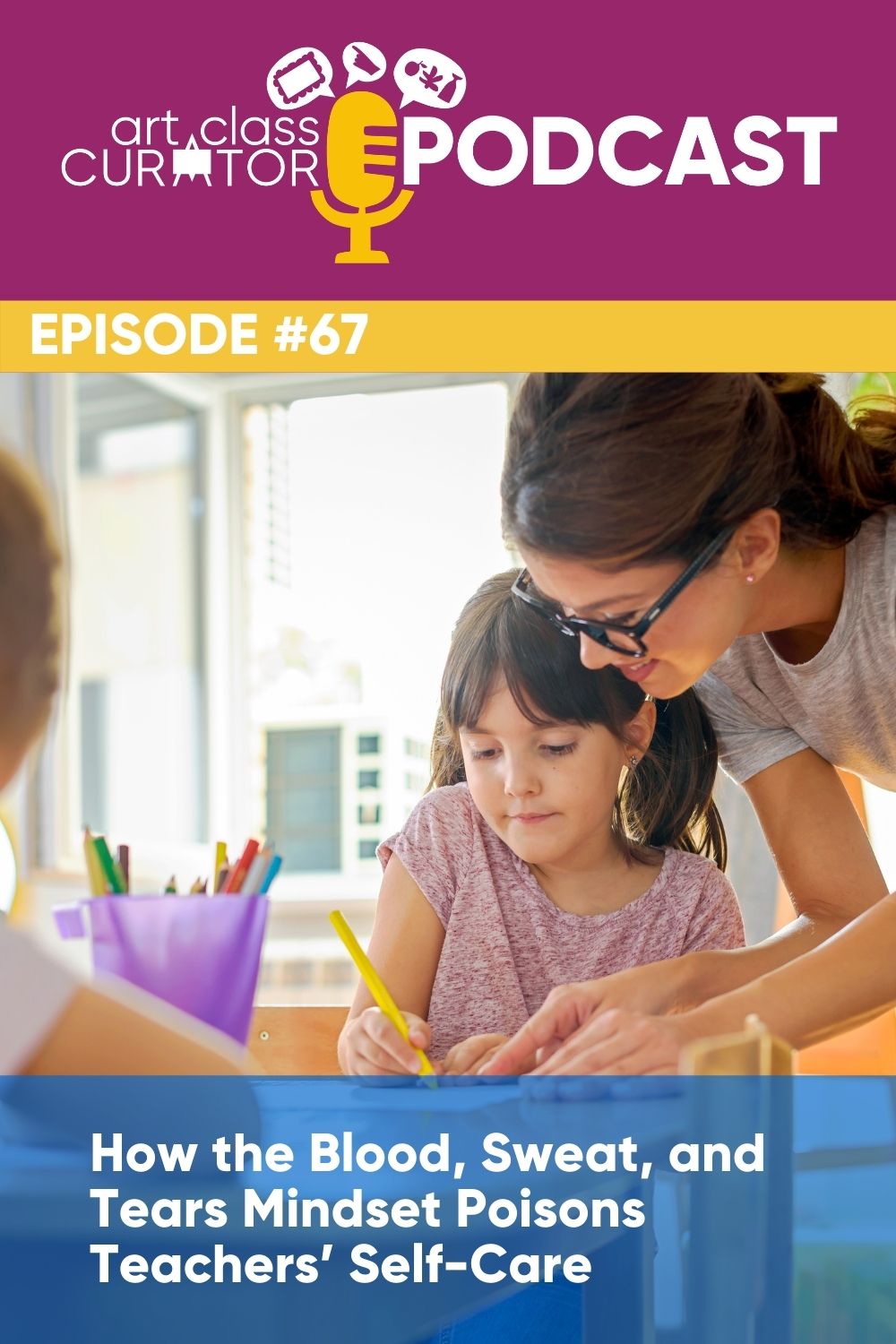
3:01 – Ways toxicity in public education took its toll
9:46 – A history of lack of support for teachers boiling over
14:40 – Reflecting on your wake-up call from this year
19:53 – Positives that came out of the pandemic for educators this year
23:14 – How to make next school year different
- 82 Questions About Art
- artclasscurator.com/takeback
- Episode 31: “Classroom management as an Act of Self-Care”
- Episode 29: “Mindset and Management with Anna Nichols”
- Episode 4: “Smart Classroom Management with Michael Linsin”
- Be a Podcast Guest: Submit a Voice Memo of Your Art Story (Scroll to the bottom of the page to submit your story.)
Cindy Ingram: Hello and welcome to The Art Class Curator Podcast. I am Cindy Ingram, your host and the founder of Art Class Curator, and The Curated Connections Library. We’re here to talk about teaching art with purpose and inspiration from the daily delights of creativity to the messy mishaps that come with being a teacher. Whether you’re driving home from school or cleaning up your classroom for the 15th time today, take a second, take a deep breath, relax those shoulders, and let’s get started.
Hi everybody, it’s Cindy Ingram from Art Class Curator. I am happy to be back with you for another episode of The Art Class Curator Podcast. Today, what we’re going to be talking about is something I’m really passionate about, something I can get maybe a little emotional about, so we’ll see how that goes. But I also don’t really have an outline for today. Often, I will come with an outline or a general idea of the flow. But today, as I was trying to plan what I was going to say, I realized that this was one of those topics that I think I just need to click record, start talking, and see what happens. That’s what we’re going to do today. Hopefully, it makes sense. Hopefully, that works for you.
Like I said in last week’s episode, this summer, we’re really focused on really getting a good feel for what you guys have gone through this year, the struggles that you’ve had, and acknowledge you for the work that you did, and empathize with you for how hard it was. We also want to celebrate that you made it through. But it’s also at a point where I don’t know that anyone is really in the right headspace for celebration at this point, that how you feel right now is exhausted and just weary, and celebrating something that was so hard, that you didn’t get enough support in just doesn’t feel right. So we do want to celebrate, we made it through and we want to get to that place but I just don’t know that we’re there yet.
We sent an email recently to our email list—if you’re not on the email list, go to artclasscurator.com and click just about anywhere, you’ll find a place to enter your email—and we’ve gotten some really beautiful responses to it. I’m going to talk a little bit about the email, then go into what I really wanted to talk about. We’ve been doing interviews of art teachers as you heard the first one last week. We did a survey talking about what we learned this year, what we are looking forward to for next year, what we learned from this year. We scoured all the Facebook groups looking for what are you all talking about. We really spent a lot of time trying to make sure we really understand where you’re at.
One of the responses that we got was someone that said that teaching has become toxic. It really hit us hard and it resonated too because all of the teachers that I know, this year, barely made it through. We thought about, “What is toxic? What does that really mean?” So I looked it up and it’s poisonous or very harmful or unpleasant in a pervasive or insidious way. It’s true, we are seeing teachers leaving the classroom in droves, early retirement, just people who quit and don’t even have another job lined up. They just could not take it anymore. We’re seeing teachers feel unsupported and unappreciated. It’s just insidious through the whole system.
It’s so sad because at the beginning of the pandemic, we saw that teachers were heroes. When the pandemic hit and everybody switched to online learning, there was this feeling of we’re all in this together. They were innovative, they were learning new technology, and they were trying new ideas. Everybody was praising the teachers for everything they were doing to keep their students engaged. As soon as the new school year started, that changed. I won’t tell you who said this but someone told me that they heard from a high up administrator that they were worried about teachers eating bonbons all day, that’s why they had to go to the school. They had to go to the school to do their online teaching because they didn’t trust the teachers were going to do their work, then they weren’t going to teach the kids.
I was infuriated because you saw, in the beginning of the pandemic, how hard the teachers were working. They were doing it from home. They were doing it with their kids at home with them. They were doing it with their spouses at home with them. They just pulled it together and did amazing things. Then a few months down the line, that changed. We saw plans for going back to school that didn’t keep the teacher’s safety in mind. All of that stuff. I don’t get worked up too easily. I don’t get mad, occasionally, I do. You all heard it a few weeks ago in the episode I did about the Van Gogh Exhibit but the thing that gets me worked up the most is injustice, unfairness, and people not respecting professionals, people taking advantage. That really upsets me, so I lived so angry for a pretty long time.
There was a lot of good in the pandemic and we talk about that in the interview next week that I’m doing with another teacher, Stacey Sternberg, who is on the podcast next week. We talk about the gift that we were given of the time to reflect on our lives when everything shut down. There were good things in it, but as far as teachers go, it was an uphill, uphill battle.
In talking about this with teachers from all over—someone in one of the survey responses said, “Through blood, sweat, and tears, we made it through this year.”—I started to think that is horrifying when you think about it. When you hear the terms blood, sweat, and tears, it feels like it’s something you should be proud of. You worked hard, you suffered through, you did it, you had perseverance, you made it, and you look back and you’re like, “Wow, I did that.” But really, you bled through it, you cried through it, you sweated through it. To get to that moment of pride, to get to that moment of looking back and realizing what you’ve done, you had to bleed and cry.
I think that is a little messed up, to be honest, because we live in this world where the hard way is considered the best way. This Puritan work ethic, this work ethic that was taught to us so that we would be good factory workers like, “You work hard. You make a living. You support your family. You should be grateful you have a job,” I feel like that’s really messed up. I am a recovering over worker. My whole life has been spent working way too hard. When I was a high school student, I studied all night, I was obsessed with my class rank, I had a part-time job, I was in AP classes, and all of that, worked through college. Every job I had after college until just like three years ago, two years ago, I worked two jobs. It was like I would work a full-time job during the day and I would teach community college at night; or I would teach during the day, teach community college at night; or I would work during the day and I start my business Art Class Curator at night.
I always had two jobs and I worked, and I worked, and I worked, and I worked, and I worked, and I worked. I don’t know how I did it and people were like, “How do you do that?” I’m like, “I don’t know. I just can do it.” Just in the last few years, I realized, “What am I hiding from with all that work? Why am I so proud of that, that I can’t rest, that I can’t sit and relax, that I can’t sit still?” Because we’re in a culture that values hard work. We’re not valuing smart work. We’re not valuing efficiency. We’re valuing hours put in, money spent. We’re valuing bodily fluids, blood, sweat, and tears being shed over your personal joy, your peace, your quality of life. I think that really has come to a head with teaching this year because teachers are in one of the professions where teachers are taken advantage of. To be honest, we are. They don’t give us enough resources. They don’t give us enough time to plan, to do all the work we need to do. We’re given too many students, too many classes, not enough time, not enough money, not enough support, not enough help, none of that.
That was the case before the pandemic. That was the case when I was in the classroom, you go, go, go, go, you don’t stop, then you work at night, and you work over the weekend. When you have to take a day off, you have to work to prepare for that. You still have to do the work for that day. It’s like you can’t catch a break. When the pandemic hit, we’re in a profession where everybody is already worked to the bone. You’re already spent. You’re already at a breaking point. Then now, here you are, you have to add in online teaching at the same time as your regular teaching, or you’re adding in teaching outside the entire time, or you’re adding a cart which adds a whole slew of problems, or you’re adding in masks and not being able to share materials, having to clean all the materials. I’m sorry if this is actually triggering you because you’ve lived this and now it’s over, and now you’re like, “Oh, I don’t know how much or what worth it is,” but we were already at a breaking point, and this year just sent it over the edge.
I’m tearing up talking about that because I think about how I felt as a teacher. I left the classroom in 2018. When I was in the classroom, it was so exhausting. I would leave, I would go to the gas station, I would get soda and hot Cheetos, and I would eat them—or Takis—on the way home and it just took everything out of me. It’s already hard enough and now, we had this happen. We did the survey, talked to a lot of teachers and one of the teachers said—and I thought it was brilliant—it said, “This year was a wake-up call. But I don’t know to what?” What are we waking up to?
What I think it is for teachers is a lot of teachers are waking up to the fact that teaching has become toxic, that teaching has become too much to handle. They are expecting too much out of teachers, they are not respecting the work that we’re doing, and they are not giving us the support that we need. This year, I heard story after story about districts giving webinars on self-care, telling teachers, “Don’t forget self-care,” and it became a joke online on all the Facebook groups, and stuff because it’s like, “How am I supposed to self-care when I am just worked down to the bone?”
Self-care is not taking a bath, getting a manicure. On the surface, I think self-care has a really bad name because self-care goes so much deeper than just taking a bath, end of a hard day. Self-care is figuring out what made that a hard day and “What can I do tomorrow to make the day a little bit easier? What can I do tomorrow to make myself feel good so I’m not run ragged by the end of the day where I have to bury myself in blankets and binge watch TV, binge eat, and all of those things? How do I prevent getting to that place of desperation in the first place?”
That’s one thing I want to challenge you to consider as you are starting your summer or as you are a few weeks into your summer, is to think about and really reflect on your year. Take a good stock of your emotions from the year. Think about what brought you joy. Think about what stressed you out. Think about what worked and what didn’t. What did you learn this year and what was your own personal wake-up call from this year? Maybe, you learned that when times get tough and when you get stressed out, you lose your creativity or you lose your desire to create art. Maybe, one element of self-care for you this summer is to reconnect with that creative side of yourself. Maybe what you realized is that when you get really stressed out, you stop eating and fueling your body in ways that make you feel good. Maybe, your self-care task this summer is to make a plan for how to prevent that in the future.
I know that is a really big problem for me. My busiest time of the year is in August when a lot of new teachers are going back to school. That’s when we’re really supporting teachers the most and I find that sometimes, I just flat out forget to eat, then it’ll be 3:00 PM and I’ll have the biggest headache in the world, then that’s made me feel terrible and that’s going to cause me to retreat into my cocoon of blankets or my bathtub and just suffer that night. This year, I am making a plan of how I’m going to feed myself in August. I’m going to lay it out, write it all out.
Really think about “Where were those sticking places in your life?” and instead of self-carrying the symptoms of how bad you feel after, self care as an act of prevention. I did another episode in the past of Classroom Management as an Act of Self-Care. It might have been that this year, you had a really hard time with classroom management. I heard that a lot, especially just with lack of motivation from students and all of that, that maybe your self-care preparation for the year is to come up with some new procedures and routines, and read up on some classroom management, so that when you start the school year, you try some new things, create a plan for how it went last year.
We have a couple episodes, there are three episodes that I can think of off the top of my head, one is with Anna Nichols and one is with Michael Linsin, then the other one is the one I mentioned of Classroom Management as an Act of Self-Care. Check those out. I’ll put links in the show notes.
I want to view self-care as something bigger, something greater, something that truly does impact your overall feeling of peace, wellness, and joy. For example, for me, I know that I am much happier, more at peace, more calm when I start the day with a standard routine. I will wake up and I’ll have a cup of coffee, then I exercise or I’ll take a walk, then I meditate. When I do those things in that order, it makes my day so much better. Think about where you can fit in those things that you know work for you. It’ll probably be something totally different but that is really important.
Another thing that you might be thinking about is that you didn’t receive enough support or resources from your administration. Also, we saw a lot of issues with art being viewed as subpar to your core classes. That has always happened, obviously. But this year, it became extra prevalent because with online learning, remote learning, I know some schools just didn’t even have art for those kids or it was optional, so the teacher was just spinning their wheels doing nothing. I saw on Facebook, a teacher said that they taught 20 minutes of a class with no one there, that all the kids were there with their cameras off. She ended the lesson and they all stayed. She was teaching in an empty room. I think we need to think about how to advocate for ourselves, advocate for art, education in general, and ask for more support and more resources.
There were good things that came out of this year. For example, we saw an increase in districts willing to fund our programs for their campuses. We had an increase in district sales because there was extra money for COVID relief through the CARES Act and money was allocated in different ways because of COVID, and teachers felt more confident asking for resources. I don’t even remember who told me this in the past but it’s a good metaphor for teachers spending a lot of money out of their pocket. You think about a teacher who just wants a box of macaroni for a lesson—I doubt many of you are doing macaroni art—but maybe they’re doing a counting exercise or whatever it is. It’s just easier for the teacher to just go get a box of macaroni from the store or a pack of wood sticks or whatever you need, because if you ask, it’s going to take time, they might say no and in the end, it’s just easier to do it yourself, pay for it yourself. It was only two dollars. But then you think about, “Well, it’s $2 this week, it’s $5 next week, it’s $25 a week after.” Then soon, you’re spending all this money out of your own pocket.
I often just didn’t even bother to ask, so I think that teachers could be a little more vocal in what they want. I think that teachers will be surprised that there are resources, there is support if only we ask. I’m not saying your school is going to buy you a box of macaroni when you need one but that’s just the example that I always picture in my head. Don’t even get me started about how I think that’s all stemmed with the patriarchy. If you ever run into me at a conference or something, we can talk about the patriarchy and teachers but maybe, that’s a future episode. Yes, this episode has been negative, it’s just been hard, but there have been some really positive things that we have learned about teachers this year. In addition to their resiliency, their passion, and dedication, we learned that teachers can learn new tricks. They can pick up new technology easily. They can transfer that teaching to the computer and they can still make learning fun for their students.
We also really learned that our attitude and our energy affects our students. It affects our creativity and we cannot be creative when we’re exhausted. I think we also learned that our students need us. They need us to be there for them. We had a hard year, our students had a hard year too and we made it through. We’re looking to a new year. I really think that part of making next year different is believing that it can be different. It’s taking the time this summer to realize what we’ve been through. Recognize the trauma that it was and work through that trauma so that when we come back, we can be there for our kids, we can be there for our students, we can be there for ourselves too. That means doing things differently next year. It means saying no to things that don’t matter. It means speaking up for yourself when you feel like you need to, even if you feel like you shouldn’t or don’t want to or it’s scary too.
We know what it’s like to not speak up. We know what it’s like to just push through. We know what it’s like to have blood, sweat, and tears. We know we don’t want to do that again but we also learned that we can—I mean it’s cliche to say—but we can do hard things. We realize that we can but we don’t have to next year. Next year, we don’t have to do that again. It was our only choice this year. For a lot of people, that’s what you just pushed through, you did what you had to do. But now, let’s take some of that power back. Let’s take some of our joy back. Let’s take some of our life and our energy back. Let’s reconnect with our students. Let’s reconnect with our creativity. Let’s reconnect with art. Let’s reconnect with why we became teachers in the first place because we can’t do that again. You can’t do it again.
The way to make next year different is to believe that it can be different. It’s time to just reclaim our profession, detoxify our profession, and reconnect with why we’re here to begin with. That’s what we’re going to talk about this summer in Art Class Curator, in our emails, in our podcasts. This is the beginning of a series of conversations that I think we need to have to prepare for the new year. We are working on developing a program, a free email program to take back your teaching, to reclaim your year, take your joy back, take your energy back, and take your power back. To do that, we are going to do a little bit of reflection, we are going to do some brainstorming, then we are going to work on a manifesto of sorts to take back our teaching and start the year with purpose, start the year with intention, and really take what we’ve learned last year. We take what we learned in our years up till this last year, then we create our new normal, our new teaching. It is going to be a mix of what you’ve done in the past, what you learned this year, and what you learned you don’t want anymore. That’s what we’re going to work on.
If you’re in our email list, then you’re great, you’re in the right place. If you are not on our email list, you can head over to sign up for this new program that we’re going to do—this new program is going to start on July 26th—to sign up for this new program, you can go to artclasscurator.com/takeback. Again, that program will start on July 26th but all of our emails this summer, our podcast episodes, we’re going to be talking about this a lot, so stay tuned for that. All of these episodes won’t be so negative or depressing. I really needed to say the things that I was feeling about this topic.
Thank you so much for listening. I am looking forward to talking with you more this summer. Our next episode, we have another teacher interview where we talked to Stacey Sternberg. She had a ton of amazing things to say about how she did a lot of art connections with her students this year. Looking forward to sharing her story with you. Thank you so much for listening. I will see you again next time. Bye.
If your art appreciation classes were anything like mine, they happened in dark rooms with endless slides and boring lectures. Art in the dark. But art appreciation doesn’t have to turn into nap time for your students. Start connecting your students to art with powerful class discussions. It can be intimidating to start talking about art with students, so teachers always want to know what they should say. The real question is what you should ask. You can get 82 questions to ask about almost any work of art for free on the Art Class Curator Blog. The free download includes the list of questions plus cards that you can cut out and laminate to use, again and again. These versatile questions can be used in everything from bell ringers to group activities to critiques. Just go to artclasscurator.com/questions to get your free copy today.
Thank you so much for listening to The Art Class Curator Podcast. If you like what you hear, please subscribe and give us an honest rating on iTunes to help other teachers find us, and hear these amazing art conversations and art teacher insights. Be sure to tune in next week for more art inspiration and curated conversations.
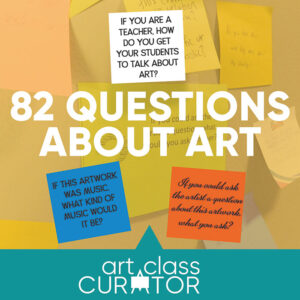
Free Resource!
82 Questions About Art
82 questions you can use to start and extend conversations about works of art with your classroom. Free download includes a list plus individual question cards perfect for laminating!
Subscribe and Review in iTunes
Have you subscribed to the podcast? I don’t want you to miss an episode and we have a lot of good topics and guests coming up! Click here to subscribe on iTunes!
If you are feeling extra kind, I would LOVE it if you left us a review on iTunes too! These reviews help others find the podcast and I truly love reading your feedback. You can click here to review and select “Write a Review” and let me know what you love best about the podcast!



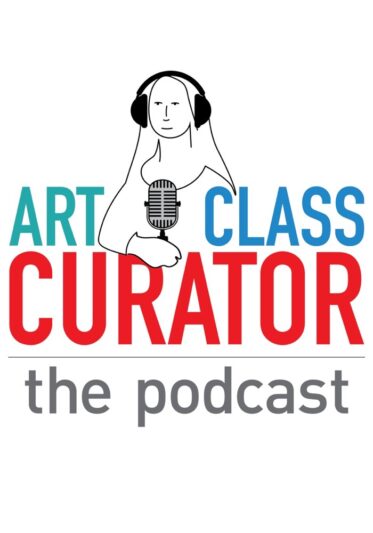
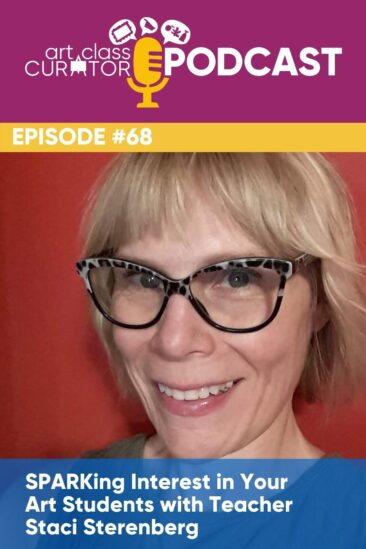
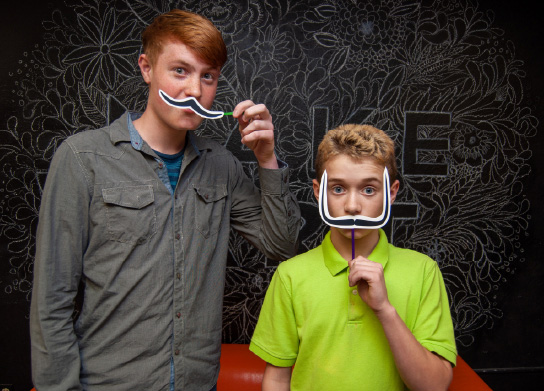
Leave a Comment